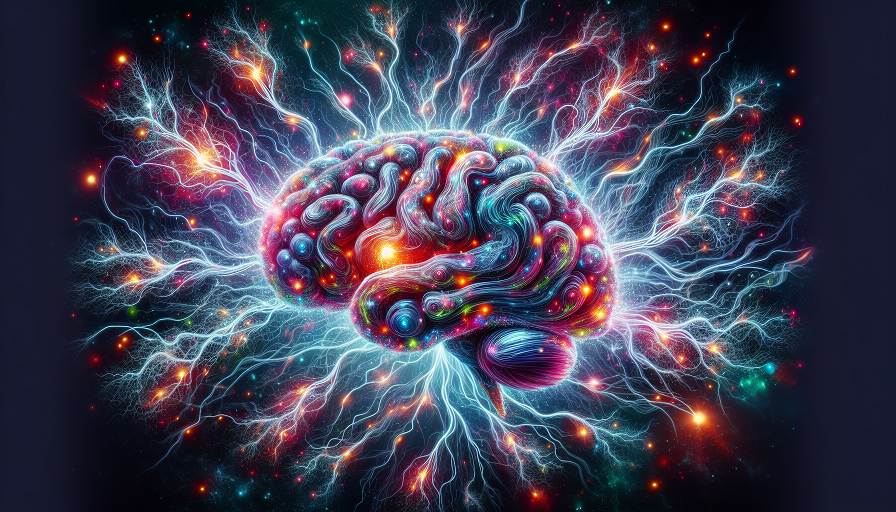
Creativity can feel elusive. One moment you’re overflowing with ideas, and the next, your brain is as blank as a sheet of paper. Mindfulness offers a way to steady this roller coaster. By focusing on the present and quieting mental noise, mindfulness creates the ideal conditions for creative idea generation.
Contents
Understanding Mindfulness and Creativity
Mindfulness, the practice of paying attention to the present moment without judgment, goes hand in hand with creativity. At its core, creativity involves connecting ideas in novel ways. Mindfulness nurtures this process by sharpening awareness, improving focus, and fostering mental clarity.
How Mindfulness Prepares the Mind for Creativity
A cluttered mind struggles to create. Mindfulness clears mental “noise,” making room for creative thoughts to emerge. By focusing your attention, mindfulness helps you become more attuned to subtle inspirations that might otherwise go unnoticed.
The Role of Divergent Thinking
Creativity often requires divergent thinking—the ability to generate multiple solutions to a problem. Mindfulness enhances this by encouraging openness and reducing self-critical thoughts that can block innovative ideas.
Reducing Stress to Boost Creativity
Stress is the kryptonite of creativity. When your mind is overwhelmed, it’s hard to access the relaxed, playful state that sparks innovation. Mindfulness reduces stress by calming the nervous system, creating a mental environment where creativity can flourish.
How Mindfulness Enhances Idea Generation
The process of coming up with ideas involves several stages—exploration, incubation, and insight. Mindfulness supports each stage by improving cognitive flexibility, focus, and emotional regulation.
Exploration: Staying Open to New Possibilities
In the exploration phase, you’re gathering inspiration and considering options. Mindfulness encourages curiosity and nonjudgmental observation, allowing you to approach problems with fresh eyes. This openness helps you spot connections that others might miss.
Incubation: Letting Ideas Breathe
Creativity often benefits from stepping back and letting ideas “simmer.” Mindfulness teaches you to be patient and present during this incubation period, resisting the urge to force solutions. This mental rest allows subconscious processes to generate insights.
Insight: Catching the “Aha” Moment
The “aha” moment is that magical flash of clarity when an idea clicks. Mindfulness enhances your ability to recognize these moments by increasing your awareness of subtle mental shifts. A quiet mind is more likely to notice when inspiration strikes.
The Science Behind Mindfulness and Creativity
Research supports the link between mindfulness and creative thinking. Studies show that mindfulness practices change the brain in ways that enhance both idea generation and problem-solving.
Strengthening Neural Connections
Mindfulness meditation increases connectivity between the prefrontal cortex (responsible for focus and planning) and the default mode network (associated with imagination and creativity). This enhanced communication helps balance analytical and creative thinking.
Reducing Cognitive Rigidity
Cognitive rigidity—the tendency to stick to familiar solutions—can stifle creativity. Mindfulness reduces this by encouraging cognitive flexibility, allowing you to approach problems from multiple angles and consider unconventional ideas.
Improving Working Memory
A strong working memory allows you to hold and manipulate information, a crucial skill for brainstorming and problem-solving. Mindfulness practices strengthen working memory by improving attention control and reducing mental distractions.
Practical Ways to Combine Mindfulness and Creativity
You don’t need to sit cross-legged for hours to reap the benefits of mindfulness. Simple practices can seamlessly integrate into your creative process, enhancing both focus and inspiration.
- Practice Focused Attention Meditation: Spend five minutes focusing on your breath or a single object. This improves concentration, helping you stay present while brainstorming ideas.
- Incorporate Mindful Breaks: Step away from creative work to meditate, walk, or practice deep breathing. These breaks recharge your mind and prevent burnout.
- Journal Mindfully: Use a notebook to write freely about your ideas without judgment. This practice encourages self-expression and helps uncover hidden insights.
- Engage in Mindful Observation: Spend time observing your surroundings with curiosity, noting colors, textures, and sounds. This enhances your ability to notice details that inspire creativity.
Pairing Mindfulness with Brain Supplements
For an added cognitive boost, consider pairing mindfulness practices with nootropics. These brain supplements enhance focus, memory, and mental clarity, creating a fertile ground for creative breakthroughs.
Applying Mindfulness to Collaborative Creativity
Creativity often happens in teams, where ideas are shared, refined, and expanded. Mindfulness improves group dynamics, making collaboration more effective and enjoyable.
Enhancing Active Listening
Mindfulness trains you to listen without interrupting or forming judgments, fostering open communication. This improves the flow of ideas in collaborative settings, leading to more innovative outcomes.
Managing Ego and Criticism
Group brainstorming can sometimes trigger defensiveness or competition. Mindfulness helps you approach feedback with curiosity rather than resistance, keeping the creative process positive and productive.
Mindful teams are more likely to stay focused on their goals. By practicing mindfulness together, team members can align their efforts and maintain a cohesive vision for their creative projects.
Mindfulness as a Catalyst for Creativity
The connection between mindfulness and creativity is both intuitive and scientifically grounded. By cultivating focus, reducing stress, and encouraging openness, mindfulness creates the perfect conditions for creative idea generation. Whether you’re a writer, artist, entrepreneur, or simply looking for innovative solutions in everyday life, mindfulness can help unlock your creative potential.
The next time you face a creative block, pause. Take a few deep breaths, observe the present moment, and let your mind settle. You might just find that the inspiration you’re seeking is already within you—waiting for the quiet space to emerge.

